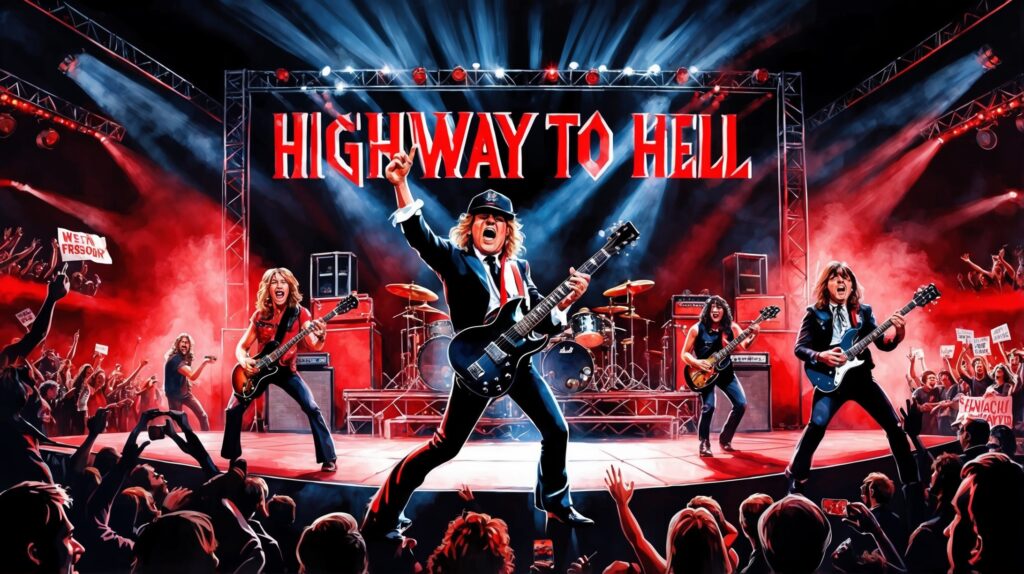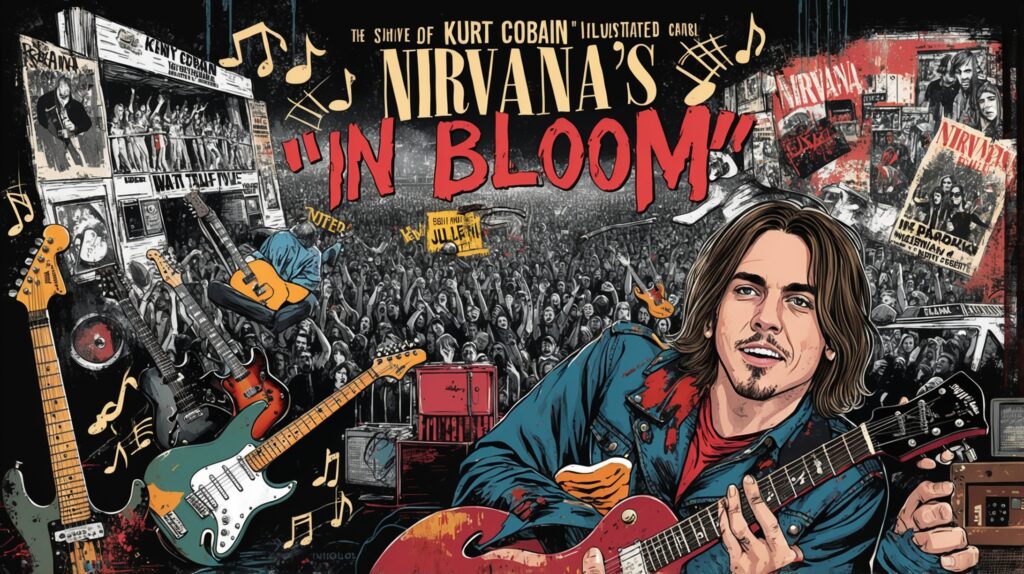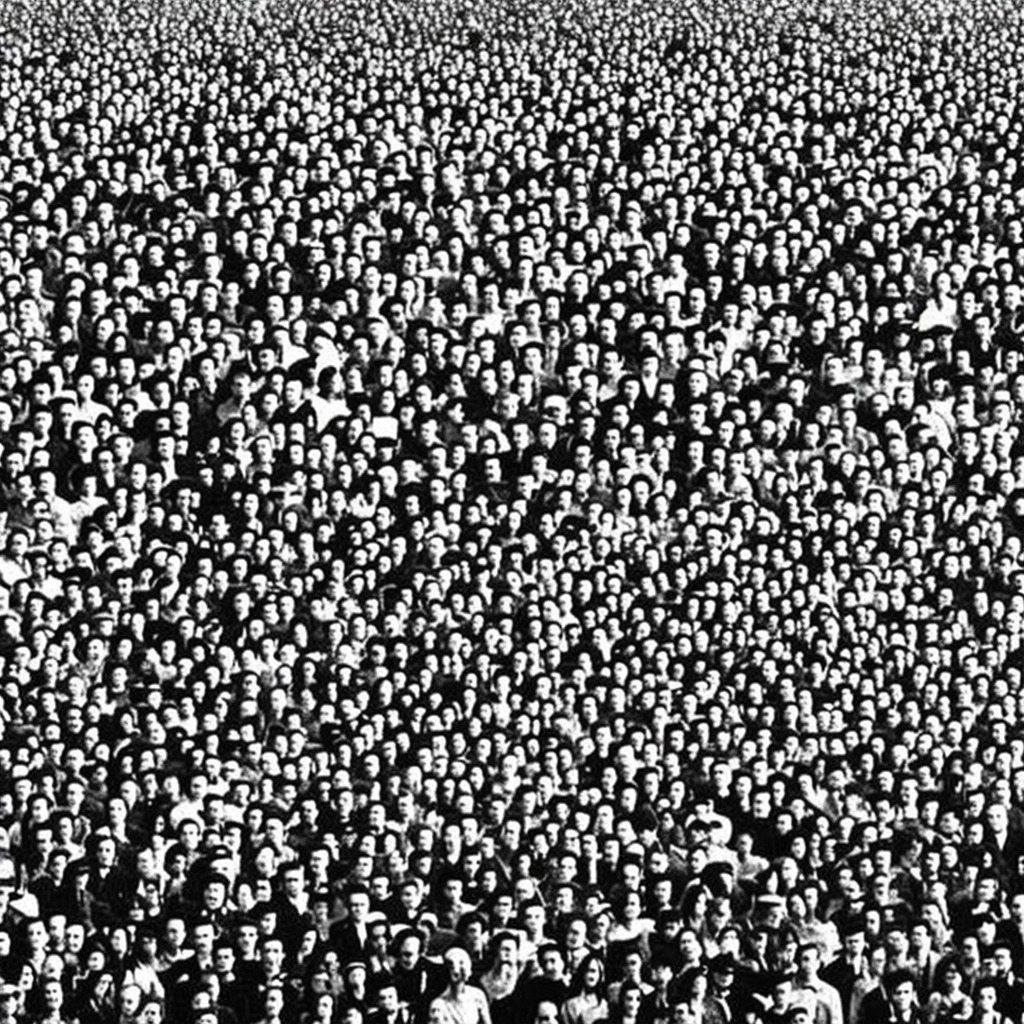AC/DC: The Iconic Rock Trailblazers
AC/DC, the iconic rock band, found their global acclaim cemented with the release of “Highway to Hell.” Emerging from Australia’s rock scene in the 1970s, they created a defining sound led by the Young brothers and Bon Scott.
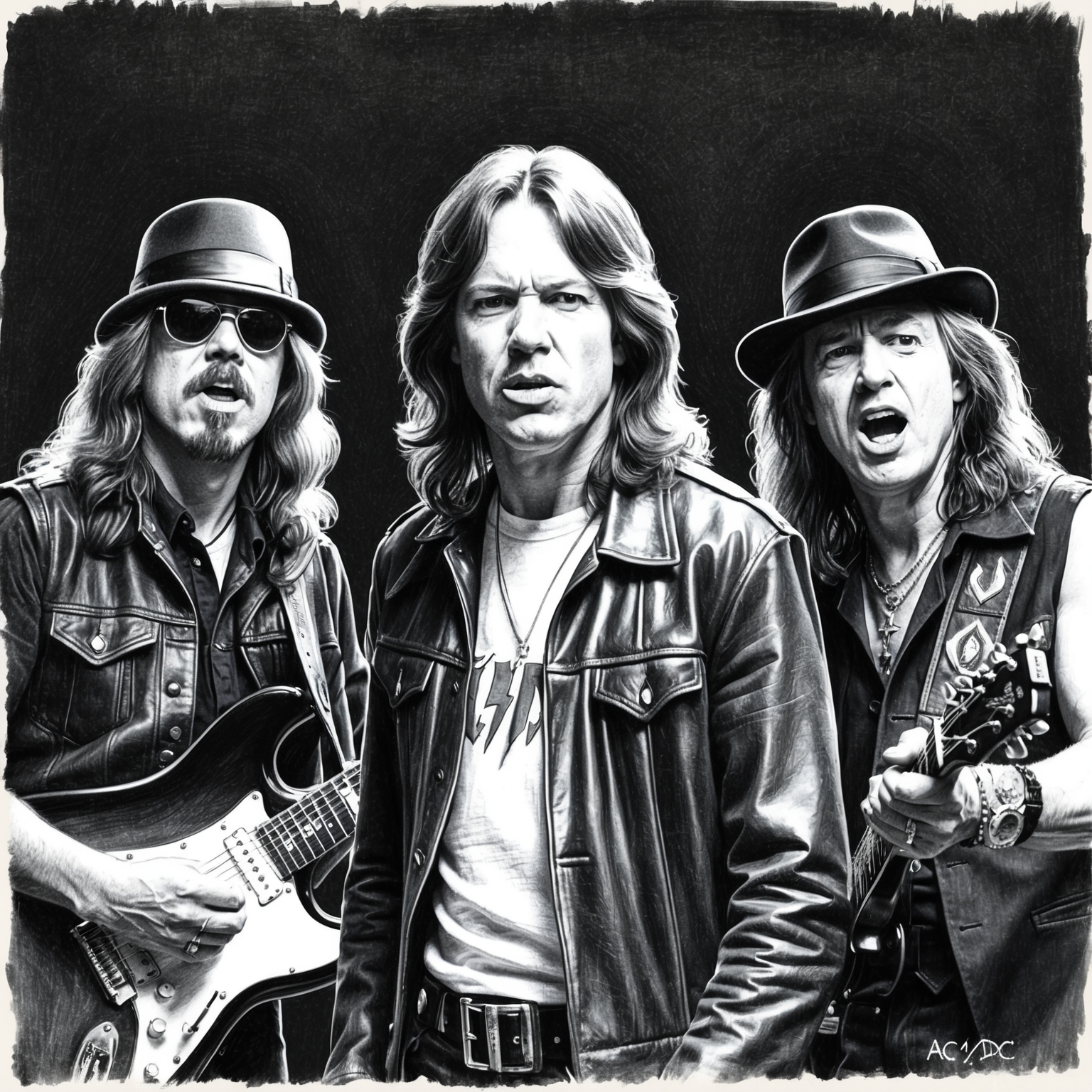
AC/DC stands as one of the most iconic rock bands in music history, and their influence is rooted in a sound that is unmistakably their own. Emerging from Australia in the 1970s, their track “Highway to Hell” became a pivotal moment in their career trajectory. The song wasn’t just another release; it was a definitive declaration of their gritty and electrifying style. With infectious energy and rebellious lyrics, AC/DC at that time was already blazing a trail, and this track cemented their global presence.
The formation of AC/DC dates back to 1973, when Scottish brothers Angus and Malcolm Young set the wheels in motion for a band that would become synonymous with hard rock. Growing up in a family with a keen appreciation for music, the brothers were influenced by the sounds of early rock and roll, which later shaped their fiery guitar riffs and pulsating rhythms. Many of the original band members, including Bon Scott whose voice would become a signature aspect of their sound, brought distinct flavors to the band’s musical identity.
By the time “Highway to Hell” was released, AC/DC already had a string of successful albums. However, this particular song, produced during a transformative period for the band, captured the essence of their rebellious spirit and powerful live act. Collaborating with esteemed producer Mutt Lange, the band managed to craft a sound that was raw yet polished, gaining them a pivotal foothold in international rock arenas. The initial reception of this track was emblematic of the era’s musical landscape, with hard rock on the rise and AC/DC at its helm.
The Composer Behind The Rock Anthem: Angus and Malcolm Young
Discover the genius of Angus and Malcolm Young, the composers behind AC/DC’s ‘Highway to Hell,’ whose unique blend of influences and seamless collaboration crafted a timeless rock anthem.
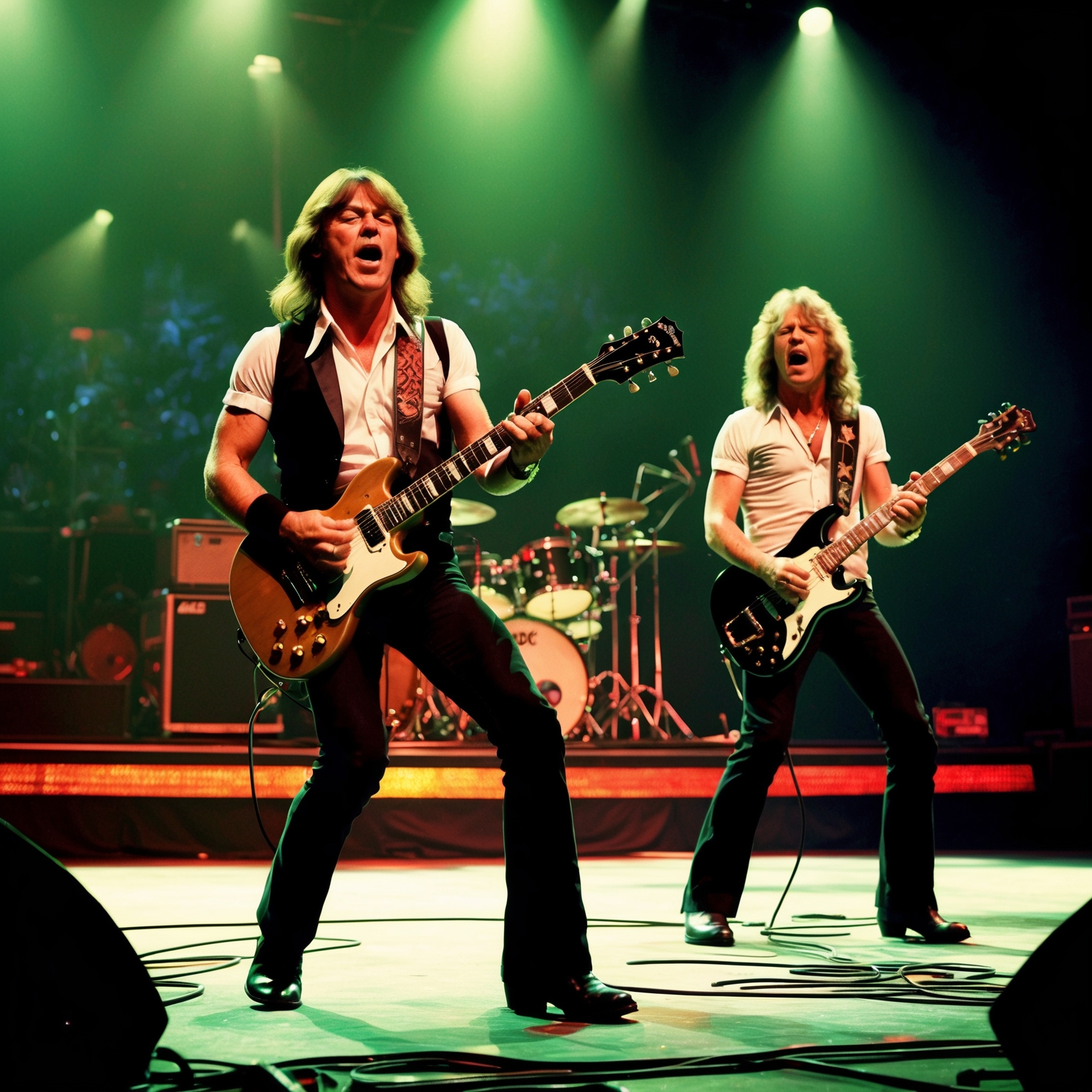
When discussing the iconic rock song ‘Highway to Hell’ by AC/DC, it’s essential to delve into the genius behind its creation, particularly the legendary brothers Angus and Malcolm Young. Hailing from Scotland and raised in Australia, the Young brothers were instrumental in shaping the sound of AC/DC with their raw and powerful musical prowess. Angus, known for his schoolboy outfit and stage antics, usually takes the spotlight, but Malcolm’s role as a rhythm guitarist and co-composer was equally significant in crafting the band’s distinctive sound.
Angus and Malcolm’s background and career reflect a life deeply intertwined with music. Their musical journey began in the bustling suburb of Sydney, influenced by the rock ‘n roll scene of the 1960s and 1970s. While neither of the brothers had formal musical training, their instinct for music was undeniable, leading them to form AC/DC in 1973. Their early career was marked by a relentless pursuit of success, resulting in multiple albums that would go on to secure their place in rock history.
Stylistically, the Young brothers drew inspiration from blues and rock legends like Chuck Berry and Led Zeppelin. This unique blend of influences resulted in a hard-driving sound characterized by powerful guitar riffs and thundering drums. Angus and Malcolm’s collaborations were seamless, often resulting in hits that showcased a perfect fusion of rhythm and lead guitar, as heard in ‘Highway to Hell.’
The creation of ‘Highway to Hell’ was a collaborative effort with Bon Scott, AC/DC’s original lead vocalist. The melody and lyrics were a byproduct of intense songwriting sessions, with Malcolm focusing on the chord progressions and rhythm that gave the track its heavy yet catchy feel. The interplay between the music and lyrics was central, with Malcolm’s riff setting a dark yet irresistible stage for Bon Scott’s gritty vocals. This synergy was pivotal in the song’s enduring success.
The impact of Angus and Malcolm Young’s composition on ‘Highway to Hell’ cannot be overstated. It solidified AC/DC’s place in rock history and paved the way for future successes such as ‘Back in Black.’ Critics and fans alike praised the song’s tight composition, adding to the band’s growing acclaim. Even today, the Young brothers’ work continues to inspire budding musicians, underscoring their timeless influence in the rock genre.
Celebrating ‘Highway To Hell’ Through the Years
Highway To Hell’ is celebrated for its impact, having been inducted into the Grammy Hall of Fame and covered by various artists. Its presence in films, TV shows, and video games underscores its enduring legacy.
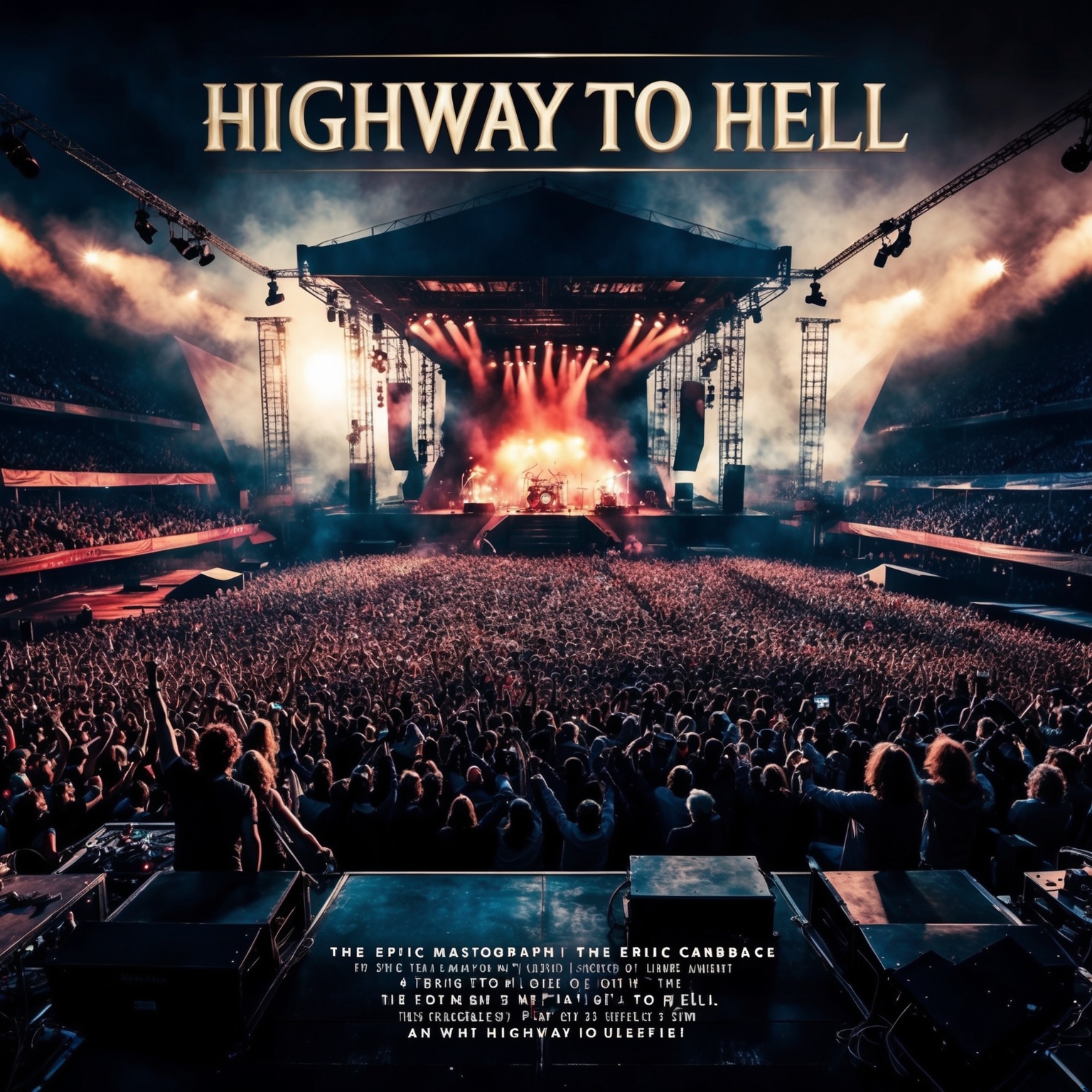
‘Highway To Hell’ is not just any rock anthem; it’s a cultural phenomenon that has gathered numerous accolades and notable recognition over the years. From awards to covers and appearances in diverse media, this song continues to weave itself into the fabric of popular culture.
The song may not have won a plethora of traditional music awards upon its initial release, but its legacy overshadows anything a trophy might offer. It has been inducted into the Grammy Hall of Fame, recognizing its enduring influence and importance to the music industry. Such honors cement ‘Highway To Hell’ as a milestone in rock history, celebrating both its impact and the raw energy it brings to listeners.
Its influence can also be felt in the numerous covers by a wide array of artists. The song has been reimagined by everyone from Maroon 5, showcasing a softer pop rock vibe, to Bruce Springsteen, who brought a raw, energetic performance to his live shows. Covers like these pay homage to AC/DC while introducing the classic to new generations of listeners.
The prominence of ‘Highway To Hell’ extends beyond music awards and covers. It has been featured in various movies, TV shows, and video games, further showcasing its cultural significance. Films like Megamind and shows like Supernatural have seamlessly integrated the song into their soundtracks. Video games like Guitar Hero also feature it, underscoring its timeless appeal and the adrenaline rush it provides.
All these honors and appearances prove that ‘Highway To Hell’ is more than a classic; it’s an enduring anthem that continues to tread fresh ground while maintaining its rock legacy.
Highway to Chart Domination
‘Highway to Hell’ gradually became a rock classic, elevating AC/DC’s career and solidifying its place in music history.

‘Highway to Hell,’ released in 1979, marked a pivotal moment for AC/DC. Upon release, the track did not immediately top the charts but gradually cemented itself as a rock classic. Initially, it reached moderate positions in various international charts, but it’s the song’s enduring legacy that highlights its true success. Over time, its timeless appeal has been reflected in its steady presence on numerous ‘greatest rock songs’ lists and its impressive streaming numbers in the digital age.
In the context of the artist’s career, ‘Highway to Hell’ was both a culmination of their growing popularity and a stepping stone to global stardom. Unlike some other breakthrough hits, this track wasn’t an immediate chart-topper but its slow-burn popularity contributed significantly to the band’s rise. Notably, ‘Highway to Hell’ was a follow-up to previous successes, but it transcended those hits with its iconic status, cementing AC/DC’s sound and appeal on the global stage. This track’s success was further amplified by the album of the same name, which became a must-have in every rock fan’s collection.
In terms of marketing, AC/DC capitalized on extensive touring, which bolstered the song’s popularity. The label released the song as the lead single and used radio promotion extensively. While there wasn’t a significant music video for ‘Highway to Hell’ upon release, live performances became a potent promotional tool, contributing to the mythical energy surrounding the track. Audience reception was favorable, with both fans and critics praising its raw energy and authenticity, which only added to its chart success.
Exploring the Visual Legacy of ‘Highway To Hell’
The music video legacy of AC/DC’s ‘Highway To Hell’ thrives through dynamic live performances and creative fan interpretations that capture the song’s rebellious essence.
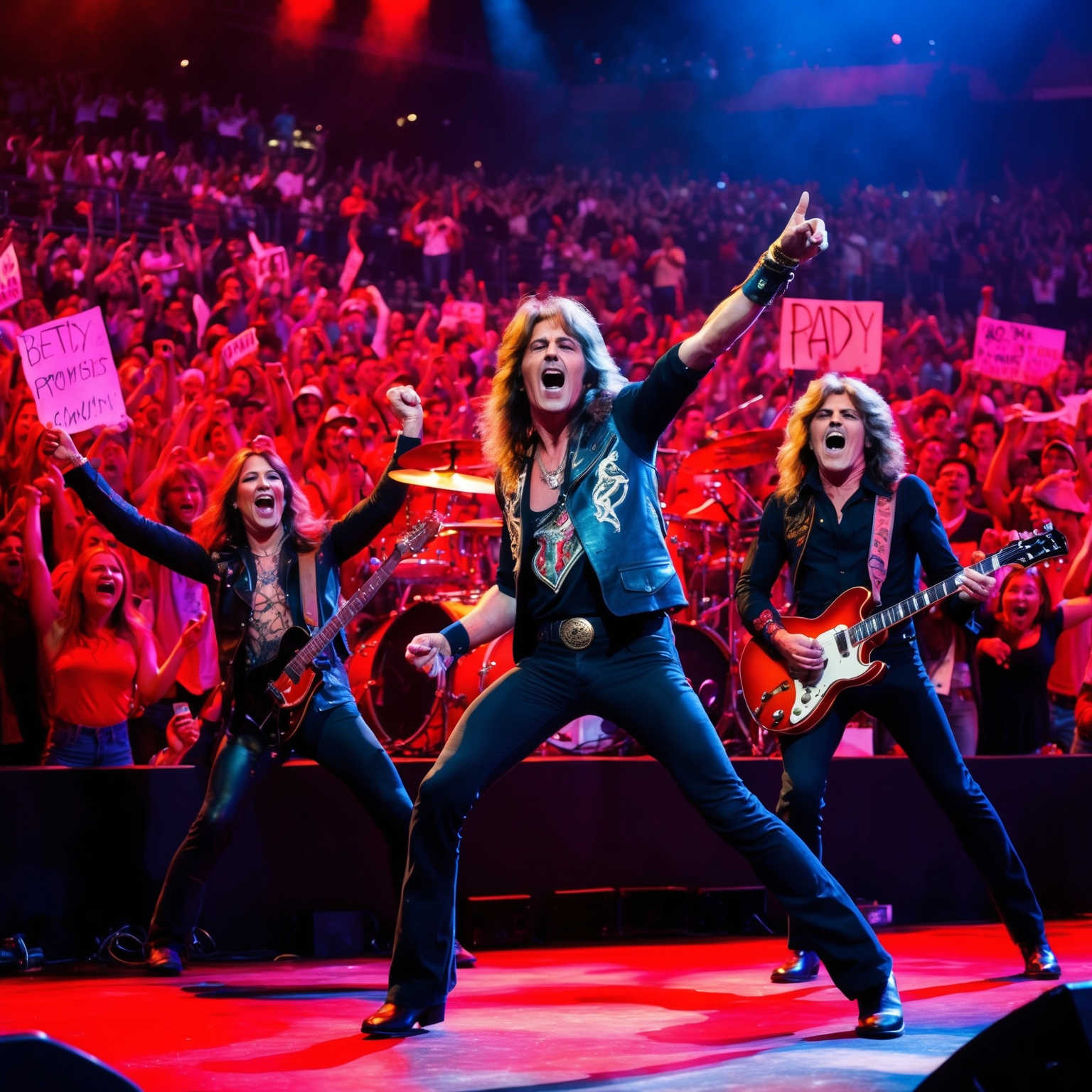
‘Highway To Hell’ by AC/DC, a legendary anthem in rock music, is known for its electrifying energy and catchy hooks. While there’s no official music video for the original studio version of the song, its legacy thrives through a multitude of fan videos and live performances that capture the essence of AC/DC’s musical prowess. With the absence of an official video, fans have taken creative licenses in crafting visual interpretations that align with the song’s driving beats and rebellious spirit.
The various live performances of ‘Highway To Hell’ give a glimpse into the raw energy and excitement synonymous with AC/DC’s legendary concerts. Notable versions include the iconic live recording from their Paris concert in 1979, during the Bon Scott era, which is often celebrated for its visceral energy and connection with the audience. These live renditions play a crucial role in maintaining the song’s popularity and are frequently replayed at rock events and festivals, capturing the raw dynamism and fever-pitch enthusiasm AC/DC was famous for.
Critically, these performances have been lauded for showcasing the band’s extraordinary stage presence. They give tangible form to the rebellion and vitality that ‘Highway To Hell’ embodies. With crisp guitar riffs and energetic vocal delivery, these live videos serve as an invaluable part of AC/DC’s audiovisual history, inviting fans both old and new to experience the intensity of their performance firsthand. Noteworthy is the relentless interaction with the crowd, cementing the song’s place as a timeless rock classic.
Unpacking the Musical Blueprint of ‘Highway to Hell’
Explore the intricate musical structure of ‘Highway to Hell’ by AC/DC, delving into its key progression, melody, and iconic guitar riffs. Discover how this song marks a pivotal point in the band’s discography, marrying raw rock energy with masterful production, while being crafted under iconic circumstances.
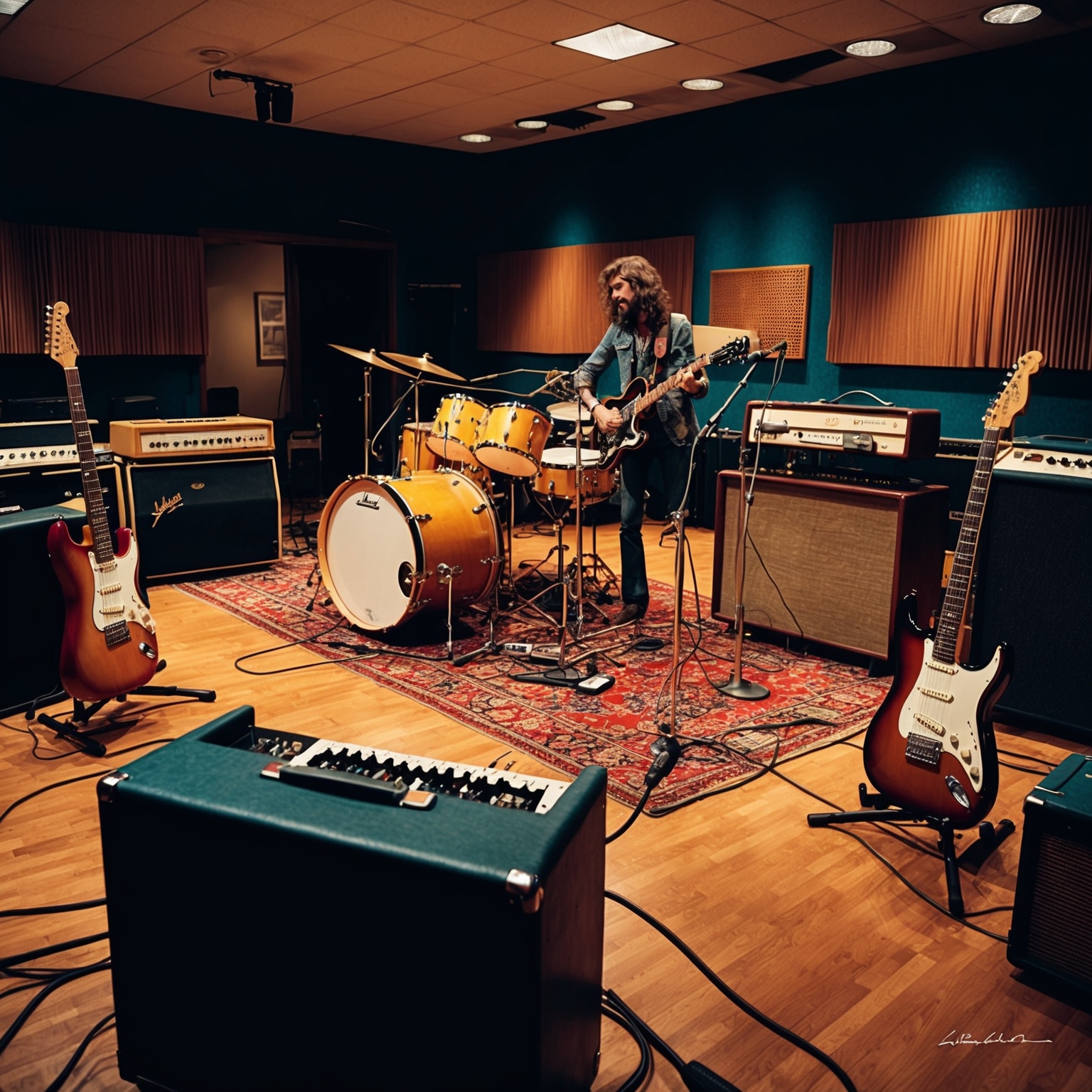
Key and Chord Structure
‘Highway to Hell’ is written in the key of A major, a classic choice for many rock anthems that crave powerful, gusty chord progressions. The song primarily revolves around the chords A, D, and G, delivering a robust, driving energy that grips the listener from start to finish. The simplicity of this chord progression not only makes it iconic but also accessible for guitarists aiming to recreate its anthemic sound. The song’s tempo is set at around 116 beats per minute, just at the threshold for infusing energizing yet controlled dynamism suitable for headbanging without rushing.
Melody, Harmony, and Rhythm
The melody in ‘Highway to Hell’ is straightforward yet memorable, aligned perfectly with the gritty, rebellious tone of the lyrics. Angus Young’s guitar riffs, sharp but melodic, lace through the song, maintaining the harmonic structure while adding a blistering yet soulful texture signature to AC/DC’s sound. The rhythm, with its steady, pounding bass and drum patterns courtesy of Cliff Williams and Phil Rudd, respectively, ensures the song’s pulse never wavers, compelling one to tap their foot and nod their head.
Instrumental Composition and Contribution
The song’s instrumental mix is quintessentially AC/DC, featuring down-to-earth, guitar-forward arrangements where each element has its space to shine. Tony Platt, the producer, achieved a raw, unpolished sound that captured the band’s live energy. Angus Young’s solos are particularly noteworthy, crafted to elevate the tension within the song and provide exhilarating peaks, while Malcolm Young’s rhythm guitar offers the backbone essential to maintaining the track’s relentless progression.
Comparative Analysis
In the broader context of AC/DC’s discography, ‘Highway to Hell’ marks a crucial stylistic turning point. It contrasts with their earlier albums, where the raw and unrestrained rock and roll was more exploratory. Here, the band honed their sound, focusing on structured delivery without sacrificing their quintessential ferocity. Compared to previous album ‘Powerage,’ this song demonstrates a maturity in thematic representation, channeling rebellion into an anthem rather than a raw narrative.
Studio Anecdotes and Interesting Facts
The song was recorded at the highly esteemed Roundhouse Studios and Olympic Studios in London, under the thoughtful production of Mutt Lange, replacing George Young, which brought a new discipline to their recording process. Legend has it that the recording sessions were casual yet intensely focused, reflective of a band on the cusp of global stardom, culminating in a track that still resonates with audiences worldwide today.
Exploring the Depths of ‘Highway to Hell’
The lyrics of ‘Highway to Hell’ by AC/DC capture the essence of rebellion and liberation through its powerful narrative and use of literary devices, appealing to listeners across generations.
Season ticket on a one-way ride
Askin’ nothin’, leave me be
Takin’ everything in my stride
Don’t need reason, don’t need rhyme
Ain’t nothin’ I’d rather do
Goin’ down, party time
My friends are gonna be there too, yeah
I’m on the highway to hell
On the highway to hell
Highway to hell
I’m on the highway to hell
…
******* This Lyrics is NOT for Commercial use *******
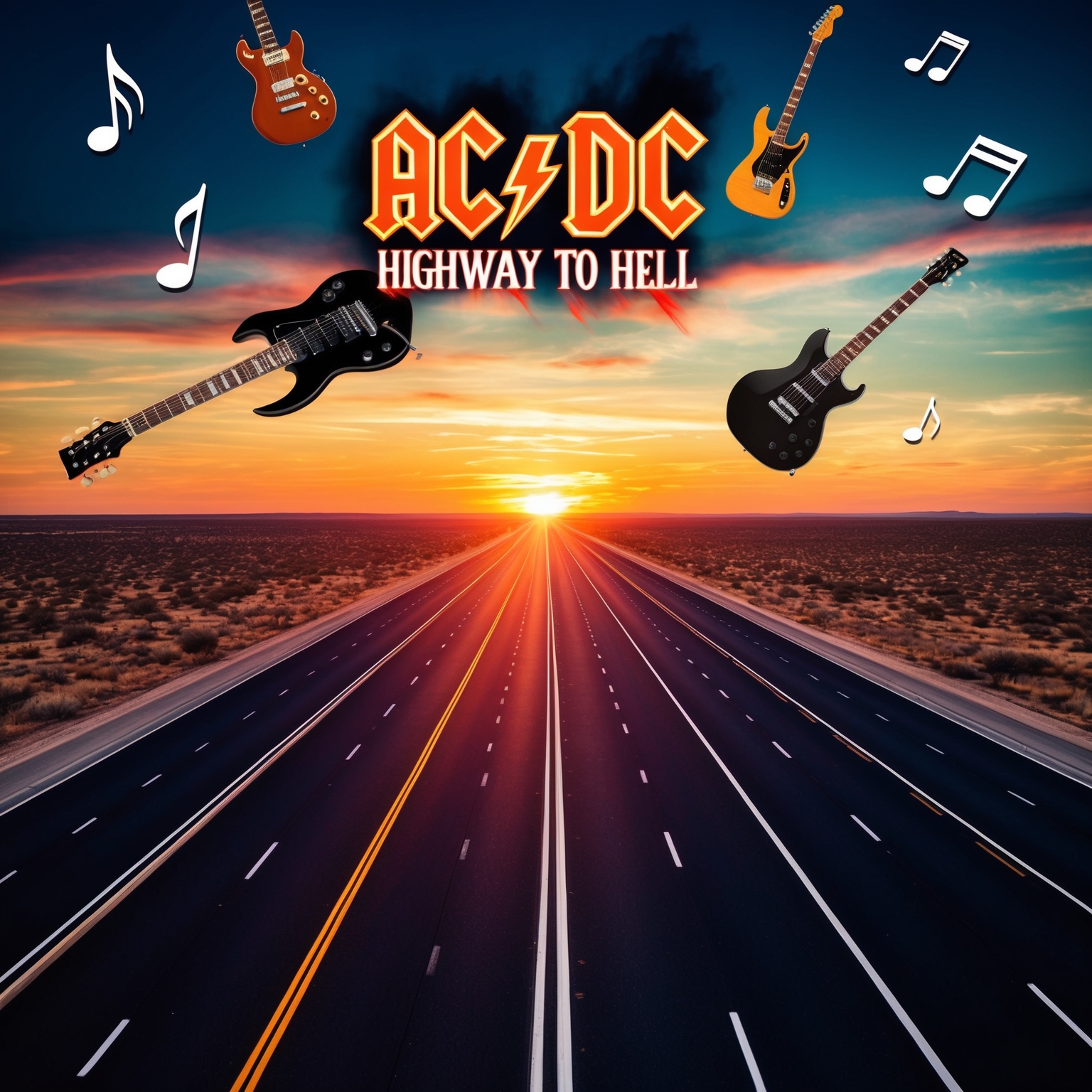 The lyrics of AC/DC’s iconic track “Highway to Hell” encapsulate a rebellious spirit that resonates deeply with its audience. Right from the onset, phrases like “Livin’ easy, lovin’ free” set the tone for a desire to break away from societal norms and embrace a carefree, if not reckless, lifestyle. The song doesn’t concern itself with political or romantic themes but rather functions as an anthem for living life without constraints. Its release in 1979 was a reflection of the era’s counterculture—a period when many sought to escape the pressures of a conformist society. As a whole, these themes have universal appeal, enabling listeners from different generations to connect with the song’s liberating message.
The lyrics of AC/DC’s iconic track “Highway to Hell” encapsulate a rebellious spirit that resonates deeply with its audience. Right from the onset, phrases like “Livin’ easy, lovin’ free” set the tone for a desire to break away from societal norms and embrace a carefree, if not reckless, lifestyle. The song doesn’t concern itself with political or romantic themes but rather functions as an anthem for living life without constraints. Its release in 1979 was a reflection of the era’s counterculture—a period when many sought to escape the pressures of a conformist society. As a whole, these themes have universal appeal, enabling listeners from different generations to connect with the song’s liberating message.
Narratively, the song employs a first-person perspective, which enhances its intimate feel and relatability. The notion of traveling on a “one-way ride” suggests a journey with no intention of turning back, underscoring a commitment to living on one’s own terms. This storytelling approach not only personalizes the experience but also amplifies the excitement and danger associated with such a lifestyle. The repetition of the line “I’m on the highway to hell” serves to reinforce the singer’s fervent embrace of this path.
The song employs several literary devices to convey its message effectively. The use of metaphors, such as the “highway to hell,” paints a vivid picture of the singer’s journey. This metaphor extends beyond its literal interpretation, symbolizing a lifestyle that might be frowned upon by mainstream society. The simplicity of the lyrics, accompanied by a compelling rhyme scheme, ensures that the song’s message is accessible yet impactful. Moreover, the insistent alliteration found in phrases like “party time” and “friends are gonna be there,” adds a rhythmic quality that enhances the song’s anthem-like appeal.
Cultural references within the lyrics speak to a broader societal defiance, hinting at a cultural moment characterized by rock and roll’s rejection of norms. The audacious nature of the lyrics contributes to the song’s lasting emotional impact, inspiring listeners to embrace their own “highway to hell”—a metaphorical journey towards authenticity and freedom. This emotional relatability likely played a significant role in the song’s enduring success, cementing its place in rock history.
? Did you know? AC/DC’s Highway to Hell was inspired by the band’s wild touring days on Australia’s roads. Rock on! ??? #HighwayToHell #ACDC #RockTrivia https://bit.ly/4eYYQPI
Click to Tweet

